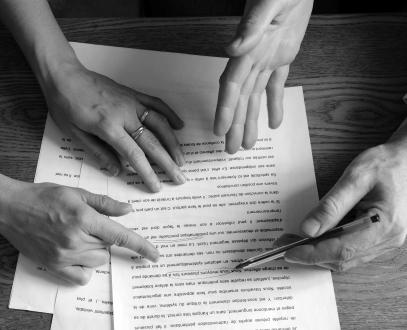Why You Should Care About the Panama Papers

May 24, 2016
In early April, the greatest corporate data breach in history, dubbed the Panama Papers, made headlines for containing over 11 million documents detailing various ways in which prominent people in power are legally avoiding paying large sums of tax money. The implications of this affect anyone living in a country that taxes or uses the internet today, from students to multinational corporations.
The increasing divide between the rich and poor has been a hot topic on the campaign trails of many a hopeful presidential candidate, American and otherwise, in the recent history of politics. This is partly due to the growing frustration of many believing their financial stagnation is due to the combined effects of scarce economic opportunity not allowing for the poor to move up, and deliberate actions being taken by the rich to ensure they stay on top; the recent developments associated with the leakage of these documents being emblematic of the later.
Mossack Fonseca, a legal firm based in Panama (giving the incident its name) with over 40 branches specializing in corporate law was home to the over 11.5 million documents leaked, and was long suspected to be assisting in the creation of tax havens and shell companies to help the elite hide away massive fortunes by taking advantage of the murky, poorly regulated practice that is the creation of offshore companies. These suspicions were all but confirmed in the documents found along with offering many prominent names involved in contracting them for such services, among the most controversial being David Cameron, prime minister of the United Kingdom, found to have at one point had money in an offshore trust set up by his father that he sold right before entering office; a bitterly ironic move in direct opposition to his constant calls for ending corruption and tax havens and adamant denial of his having any part in the account.
Notable politicians and heads of state are a dime a dozen in the documents leaked, including the Prime Minister of Iceland, Prime Minister of Australia, the President of Ukraine and the President of the United Arab Emirates. In even greater abundance are the family members and close friends of those in power, such as multiple childhood friends of Russia’s Vladimir Putin, the personal secretary to the King of Morocco, and the entirety of Azerbaijan’s first family being just a few.
Venezuela, a country rife with some of the worst governmental corruption in the world and on the verge of economic collapse is mentioned in 241,000 of the papers leaked detailing how the president and multiple government employees were able to hide millions of dollars funneled to them through their state run oil company in exchange to turn a blind eye to regulating the actions and flow of money of the industry in a nation with some of largest reserves of crude oil in the entire world. Oil accounts for around 95% of all of Venezuela’s exports and 9% of the United States’ total oil imported, yet it remains one of the poorest countries in South America with a poverty rate hovering around 80% and inflation expected to reach 700% by the end of 2016.
There are legitimate reasons to own an offshore company, such as being able to purchase property in accordance with laws preventing foreigners from holding real estate, to divide property in exactly the manner of your choosing upon your death, as well as simply owning a legitimate, operating company on foreign soil. However, the problem arises in the difficulty involved in ascertaining whether or not an offshore company is truly legitimate, and even more difficult is closing the long standing loopholes that they exploit as the use of offshore companies to dodge taxes is rarely strictly illegal.
Today in our country, it is quite easy to become numb to constant talks of national spending and budget; after a while that strange phenomenon that words begin to lose their meaning after incessant repetition begins to set in, often without us recognizing its presence. Yet, the reality is that these things play huge roles in our life, as government spending is responsible for keeping schools functioning, roads drivable, key research possible, and benefits being provided to those who need them and thousands of other services and programs.
This of course puts economic strain on the common American citizen through taxation, which while necessary to maintain functioning infrastructure, certainly isn’t thrilling for many of those living near paycheck to paycheck, which is what makes the concept of legal tax havens engineered by the elite a serious topic, as highlighted by the Panama Papers, and which needs addressing as soon as possible. An estimate put forth by a tax gap report from the American government estimated that, in 2006, around $450 billion USD that should have been owed in taxes were hidden through a variety of methods. This money represents a huge burden that has been unduly placed on the working class, made to shoulder more of the burden for ensuring the continued ability for the country to function as year after year huge sums of money owed to the federal government by those on the top of the economic pyramid go unaccounted for, resulting in placing more responsibility on those who don’t have access to the ability to exploit loopholes excusing them from chipping in their share.
Another important takeaway from the Panama Papers and the global reaction to their release is that it will become harder and harder for individuals and corporations to get away with less than honest proceedings in an era where data breach journalism is as legitimized as it currently is, even more so after this unprecedented incident. Wikileaks has long been a recognizable name for playing its part in releasing multiple classified government documents to the public, however it has long struggled with public image and legitimacy; its leader, Julian Assange, has been unable to leave the Ecuador London Embassy since 2012 for fear of being arrested and extradited to Sweden and from there to the United States.
This most recent incident, however, was carried out entirely by a sole anonymous hacker, who promptly provided the documents to The International Consortium of Investigative journalists (ICIJ), avoiding any potential prosecution whatsoever and very few outside of Mossack Fonseca themselves have objected in any way to the leak on the same level of the opposition Wikileaks found themselves facing.
However, with the internet being relied on more and more for hosting information and communication, if someone is smart enough and determined enough to get a hold of that information they probably will. And while that means illicit dealings by corporations are more likely to be exposed to the public eye, the same could be said about any information hosted on the internet, which doesn’t speak wonders for the already waning ability to maintain personal privacy as we advance further into the digital age.
Creative Commons photo source: https://upload.wikimedia.org/wikipedia/commons/b/b2/Ecrivains_consult_-_Texte_4_mains.jpg




